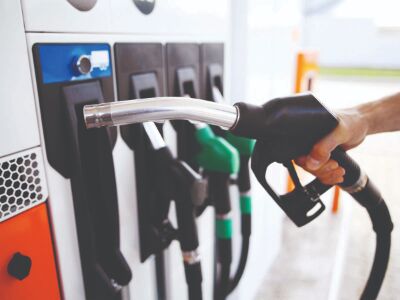Hot oil!
High fuel prices are burning a hole in the common man’s pocket and negatively impacting all sectors of the economy

In 2008-'09, when I was reporting on the Left Front, Gole Market in Delhi was my favourite haunt. The local tea sellers and the roadside snacks vendors grew familiar as I spent long hours stationed outside CPI(M) HQ, AKG Bhawan. While the Indo-US Nuclear Deal led to the severing of ties between the Left and UPA-I, price rise and inflation was yet thorn in the alliance. The Left Front, and more specifically the CPI(M), have been one of the most active parties that protested about price rise and inflation, often lonely in their people's struggles held at neighbourhood junctions. Today, all of us should be agitating against the steep rise in fuel prices, which is surely pinching all across the country, and the ever-increasing hole in our pockets! But alas, very few are. Perhaps they aren't stepping out of their houses or are going green by walking or cycling but they should all be forewarned of the debilitating impact of high fuel prices on the economy.
Fuel prices are on fire, and its meteoric rise is inscrutable given that international crude prices have been low for many years. It's ironic that we paid less for fuel when international crude oil prices were high versus now when they are low. Petrol has touched Rs 100 a litre in certain Indian cities, which I'm sure will be a greater reason to stay at home than even Covid-19! In the last year, international crude prices have dropped by about 5 per cent and yet the benefits haven't been transferred to the end consumer i.e., you and me. They have on the other hand increased even further at the cost of all logic. Even unsubsidised LPG or cooking gas is costlier today.
And it's not just a headache for the 'aam aadmi' whose monthly household budgets have obviously increased manifold; every sector is gravely impacted by rising fuel prices even as a rebound during the pandemic is still far away. The cost of transport and logistics will skyrocket, which in turn will push up food costs. Inflation, which has eased in the last few months, looks dangerously close to increasing. High oil prices mean a drop in car sales, which would negatively impact the auto sector that is already reeling under sluggish two-wheeler and four-wheeler sales. When industries do badly, can job losses be far behind? The domino effect of fuel price rise can be serious.
The excruciatingly high prices are primarily due to the heavy taxes levied on fuel. Economist Ajit Ranade explains that the excise duty collection on fuel by the Centre and the state was a whopping Rs 14 lakh crore in the last three years. Rs 3.2 lakh crore will go into central coffers next year, with only Rs 7,000 crore or 2.1 per cent being given to the states, because ingeniously (or craftily) the government is charging more as non-shareable cess versus shareable union excise duty. Saddled with such high taxes, any increase in international fuel prices (as is happening now prices hovering at USD 65.09 a barrel) translates into a staggering surge in oil prices. The OPEC (Organisation of the Petroleum Exporting Countries) has determined to continue supply curbs that caused a rise in oil prices, and hurt India, which is the third-largest importer of fuel in the world, significantly.
Obviously, a cash-strapped government in dawdling economic times is relying heavily on this hefty tax collection, but the agony of the common man is now unbearable considering that we paid four times the price of crude oil last year when international prices were low. Compared to our oily pains, even Nepal and Sri Lanka are faring better as are the US, Thailand, China, and South Korea that have all managed to pass on the benefits of low crude prices to their citizens.
India meets 85 per cent of its fuel needs through imports and the central government is aiming to reduce India's dependence on it. While that's a great vision and I applaud the government for it, the plan itself is a long-term one, while in the short-term high oil prices continue to singe us. We are facing an economic emergency — high fuel prices will hit the economy even as we scramble to bounce back during an ongoing pandemic. The government must urgently reduce excise duty and cess to provide some relief to the common man and industry.
The writer is an author and media entrepreneur. Views expressed are personal



